| ▲ 전라북도건축사회 회장과 (사)참좋은정치개혁연대 대표를 맡고 있는 박진만씨가 전주 시내 주요 사거리에서 14주째 강제 징용 셀프 보상 반대와 친일 굴욕 외교 규탄ㆍ후쿠시마 방사능 오염수 방류금지 및 일본 방사능 오염 농ㆍ수산물 수입 금지를 핵심으로 서명운동을 전개해 시민과 정치권의 이목을 끌고 있다. / 사진제공 = 전라북도건축사회 박진만 회장 © 김현종 기자 |
|
전라북도건축사회 회장과 (사)참좋은정치개혁연대 대표를 맡고 있는 박진만씨가 전주 시내 주요 사거리에서 14주째 서명운동을 전개해 시민과 정치권의 이목을 끌고 있다.
박 회장이 주도하고 있는 서명운동은 윤석열 검사독재 정권의 강제 징용 셀프 보상 반대와 친일 굴욕 외교 규탄ㆍ후쿠시마 방사능 오염수 방류금지 및 일본 방사능 오염 농ㆍ수산물 수입 금지가 핵심으로 담겼다.
서명운동을 시작할 당시, 시민들의 반응이 다소 사늘했지만 후쿠시마 방사능 오염수 방류 시점이 다가오면서 관심이 증폭되기 시작하면서 자발적인 참여로 이어지고 있다.
박 회장은 '서명운동을 진행하게 된 배경'을 묻는 취재진의 질문에 "'진실과 정의는 반드시 승리한다'는 믿음으로 시민의 참여를 통한 문제 해결을 위해 진성성을 갖고 지난 봄부터 주말이면 날씨와 상관없이 인파가 운집하는 장소를 찾아 진행하고 있을 뿐"이라고 말문을 열었다.
그러면서 "우리나라를 포함한 주변국이 방사능 오염수 방류에 안이하게 대처하는 사이, 일본은 경제적 대가를 적게 치르고 자국 내 위험 요소를 빠르게 해소하겠다는 의지로 오염수를 바다에 방류해 전 세계 모두에게 위험 요소를 분배하는 시간의 흐름을 통해 인간의 기억에서 멀어지게 해 책임의 소재를 흐리게 하고 그 책임에서 벗어나 마치 없었던 일처럼 만들려고 하고 있기 때문"이라고 밝혔다.
특히 "정말, 오염수를 '처리수'로 부르며 그 폐해에 문제가 없다면 일각에서 주장하는 것처럼 그 오염수를 일본의 농업용수나 생활용수로 사용해야 하는 것 아니냐"며 "그렇지 않은 이유를 해명하지 못하는 부분에서 문제점을 읽을 수 있는 것이 아니겠느냐"고 해양 방류 문제점에 대해 조목조목 설명했다.
이어 "1972년 체결된 런던협약을 살펴보면 '늘어나는 방사능물질 해양투기'로 개정안이 1994년도에 추가로 발효됐고 1996년 발효된 '96 개정 의정서'가 새로 채택됐다"며 "대한민국은 물론 일본도 런던협약 가입국"이라고 제시했다.
또한 "일본은 '후쿠시마 원전 오염수가 육상기원 오염이기 때문에 폐기물 투기 행위 대상이 아니라 런던 의정서 적용 대상이 아니다'라고 주장하고 있다"며 "일본의 이 같은 행위는 런던 의정서 제2조에 명시된 '모든 오염원으로부터 해양환경을 보호해야 할 의무'를 준수하지 않은 것으로 자국의 이익을 위해 일본은 국제협약조차 자의적 해석을 통해 국제사회를 조롱하고 있다"고 지적했다.
끝으로 "바쁜 일상이지만, 서명운동에 동참한 시민들이 힘을 내라며 주먹을 불끈 지어 보일 때면 힘이 난다"며 "민족 자존심 상실 외교와 실물경제 침체 현상이 청년세대의 어두운 미래로 이어지는 현실이 너무나 안타깝고 어려운 현실에 함께 저항하고 함께 고민하며 더 나은 새로운 시대를 열어 나아갈 수 있도록 동참해 줄 것"을 덧붙였다.
☞ 아래는 위 기사를 구글 번역이 번역한 영문 기사의 '전문' 입니다.
구글 번역은 이해도를 높이기 위해 노력하고 있으며 영문 번역에 오류가 있음을 전제로 합니다.
【Below is the 'full text' of the English article translated by Google Translate.
Google Translate is working hard to improve understanding, and assumes that there are errors in the English translation.】
Park Jin-man, chairman of the Jeonbuk Architectural Association, launched a 'signature campaign'
Attention of citizens and politicians… Oppose humiliating diplomacy!
Reporter Kim Hyun-jong
Park Jin-man, chairman of the Jeollabuk-do Architectural Society and representative of the Solidarity for Very Good Political Reform, has been drawing attention from citizens and politicians by carrying out a signature campaign for 14 weeks at major intersections in downtown Jeonju.
The signature movement led by Chairman Park included the opposition to self-compensation for forced labor under the dictatorship of Prosecutor Yoon Seok-yeol, condemnation of pro-Japanese humiliating diplomacy, banning the release of radioactively contaminated water from Fukushima, and banning imports of radioactively contaminated agricultural and marine products from Japan.
At the beginning of the petition campaign, the reaction of the citizens was rather cold, but as the time for the release of radioactively contaminated water from Fukushima approached, interest began to amplify, leading to voluntary participation.
In response to a reporter's question about the background of the signature campaign, Chairman Park said, "With the belief that 'truth and justice will always win', he has sincere efforts to solve problems through citizen participation. Regardless, we are just looking for places where crowds gather," he said.
"While neighboring countries, including Korea, are complacently coping with the discharge of radioactively contaminated water, Japan is distributing the risk factors to everyone around the world by releasing the contaminated water into the sea with the will to quickly resolve the risk factors within itself at a low cost," he said. It is because we are trying to blur the whereabouts of responsibility by moving away from human memory through the flow of time, and to make it as if it never happened."
In particular, he said, "Really, if polluted water is called 'treated water' and there is no problem with its harmful effects, shouldn't the contaminated water be used as agricultural water or living water in Japan, as some argue?" Wouldn't it be possible to read the problem?" he explained item by item about the problem of ocean discharge.
"If you look at the London Convention signed in 1972, the amendment was additionally entered into force in 1994 due to 'increasing dumping of radioactive materials at sea,' and the '96 Amendment Protocol, which entered into force in 1996, was newly adopted." member country".
In addition, "Japan claims that 'because the contaminated water from the Fukushima nuclear power plant is land-based pollution, it is not subject to waste dumping and is not subject to the London Protocol." Japan is mocking the international community through arbitrary interpretation of even international agreements for its own benefit by failing to comply with its duty to protect the marine environment."
Finally, "It's a busy daily life, but I feel empowered when citizens who have participated in the signature movement show their fists clenching their fists, asking for strength," he said. We will join in resisting the unfortunate and difficult reality together, worrying together, and opening a new, better era."















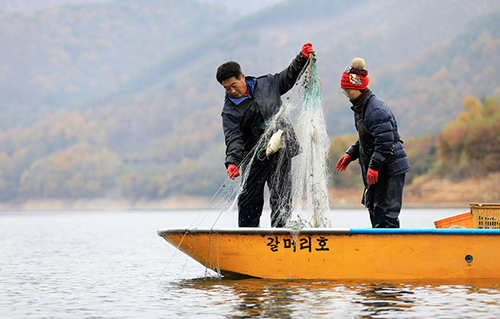
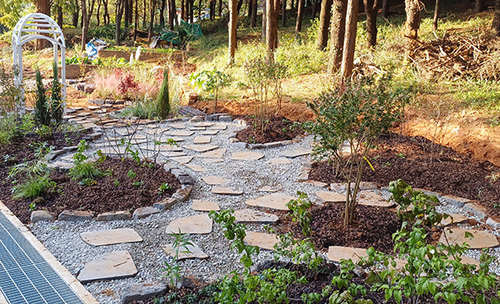
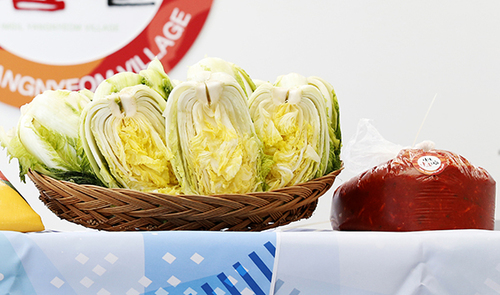
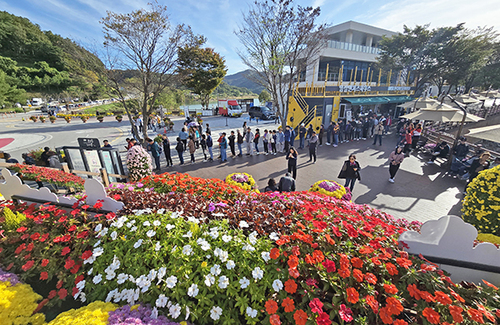
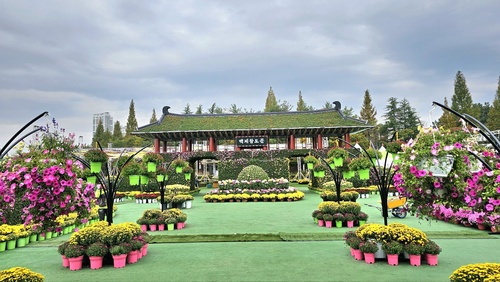
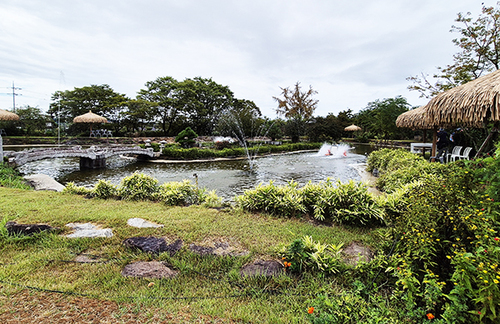
 많이 본 뉴스
많이 본 뉴스











